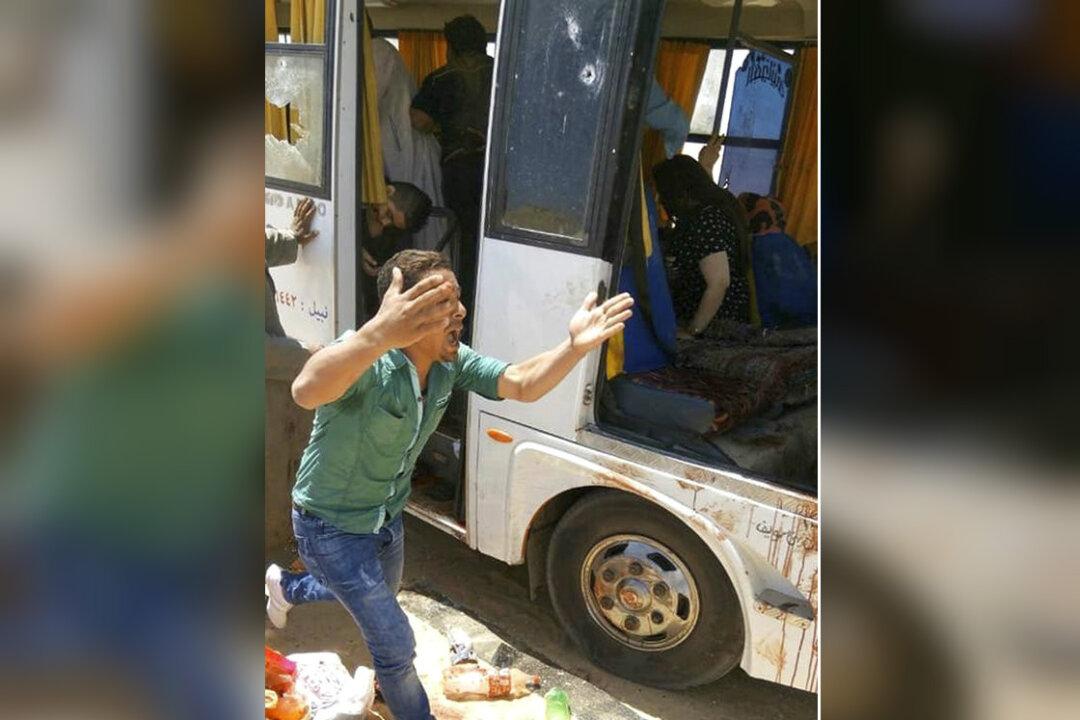CAIRO—Islamic extremists on Nov. 2, ambushed two buses carrying Christian pilgrims on their way to a remote desert monastery south of the Egyptian capital of Cairo killing seven and wounding up to 16, according to the Interior Ministry and security officials.
Coptic Orthodox Church spokesman Boulos Halim said the death toll was likely to rise. Local church officials in Minya province where the attack took place put the death toll at 10, but the higher figure could not be confirmed.





